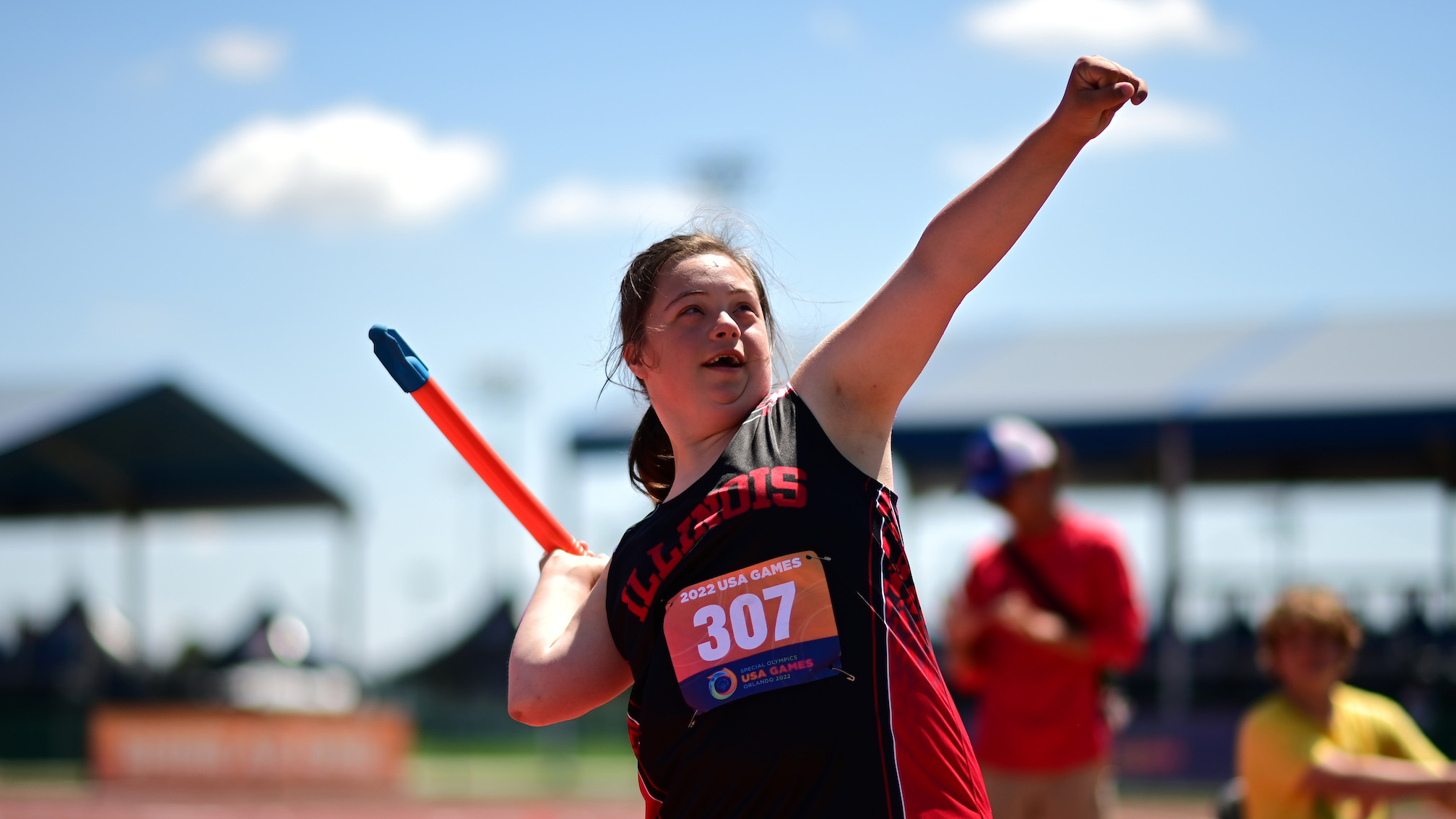Inside the project management overhaul at the Special Olympics USA Games
Organizers swapped emails and spreadsheets for Smartsheet to enable project management rooted in collaboration


The Special Olympics USA Games is the world’s largest sports organization for children and adults with intellectual disabilities. Every four years, thousands of athletes compete in sports such as basketball, gymnastics, open-water swimming, and triathlon. The 2022 USA Games were held in Orlando, Florida with more than 5,500 athletes and coaches competing in hundreds of events across dozens of venues.
Putting on the week-long games is a hugely complex undertaking, and the 2022 games used the Smartsheet collaboration and project management platform to support everything from the build-up to the games to the schedules at the event itself. It also used the software to help power the event's dedicated app.
Lonnie Snyder, chief technology and information officer at the 2026 Special Olympics USA Games tells ITPro that when he joined the local organizing committee for the 2022 games, it was still in startup mode with little infrastructure.
“We had email, and everyone loves spreadsheets… they were constantly emailing spreadsheets around,” he says.
This created problems along the way, with a slow turnaround on changes to spreadsheets and a lack of ability to collaborate in real-time. “You would be stuck in spreadsheet jail where you were responding to things from yesterday and you had all your paragraphs and updated all your data, and then right as you hit send, three other people sent updates,” Snyder tells ITPro.
“So no one ever knew what the truth was, and we were looking for a way to start managing and collecting our projects and showing who was actually responsible for them,” he adds.
The 2022 Special Olympics USA Games chose the Smartsheet software as a service (SaaS) platform for project management across more than 70 internal projects and to create a portal for its heads of delegation. These roles oversee the 64 delegations attending the games, providing them with information on upcoming milestones and deadlines.
Sign up today and you will receive a free copy of our Future Focus 2025 report - the leading guidance on AI, cybersecurity and other IT challenges as per 700+ senior executives
The team also built their operations dashboards in Smartsheet to manage schedules, equipment deliveries, accommodation, technology, transportation, and volunteer coordination. Snyder says that while his team considered several other solutions, they were either five times the cost or couldn’t meet their needs.
“Smartsheet quickly became our central hub for everything we were doing. ‘If it wasn’t in Smartsheet’, I told people, ‘it didn’t exist’,” Snyder says.
Instead of creating a 60 or 70-page binder detailing the agenda for a particular event, all of the information was held in Smartsheet. Organizers could access this on their phones, rather than having to worry about pulling a laptop out of their backpacks or digging out a binder to find the right page.
App-based collaboration for better scheduling
Whereas scheduling for previous events could mean creating a 60 or 70-page binder detailing the agenda, Snyder’s team was able to store all information in Smartsheet for the 2022 USA Games. Organizers could access this on their phones, rather than having to worry about pulling a laptop out of their backpacks or digging out a binder to find the right page.
“Smartsheet became sort of our external brain,” Snyder says, adding that the improved management and collaboration capabilities the platform brought were timed with an especially challenging year for the Special Olympics USA Games.
“We had a really monumental task of trying to execute the largest USA Games that had ever been organized, and we wanted to be the best in class and the most technologically advanced,” he tells ITPro.
Part of this was building a game app for participants and spectators, with Smartsheet as the source for the schedule. This meant that if there were changes to the schedule this could be made in Smartsheet and this would quickly update the app.
RELATED WHITEPAPER

Snyder says that all of this meant that using Smartsheet saved the games from hiring four people more people at least – two more technology managers plus two more junior staff – for a yearly saving of $200,000 a year or more.
“It became an indispensable secret weapon. I would probbaly have needed three more of me if I hadn’t had this system,” he tells ITPro, comparing the system’s wide range of uses to a Swiss Army Knife.
Smartsheet is a low-code solution, and it was quick to get people up and running with some training on processes. “Just in case a smart person is having a bad day there’s automatic backups,” Snyder says.
The games also used DataMesh, a Smartsheet data management tool that maps data between large sheets to avoid unnecessary duplication to give internal teams and outside vendors an easy way to track event-specific details.
“We have a complex master equipment list and requirements gathering process, and DataMesh streamlines it so we can easily see everything that’s needed for a particular venue or event,” Snyder says.
“Now, we have a drop-down list of things to choose from, including furniture or equipment types, medical supplies, or other categories. When it’s time for procurement, a vendor only sees the equipment or supplies they’re responsible for without worrying about touching the source data.”

The next step is to take the lessons from the 2022 games and apply them in the run-up to the 2026 games, to be held in Minnesota, including more automation and better visibility of information for executives.
“We’re definitely taking it up a notch or two in terms of professionalism. We do a board update monthly and so we are working to make all that content driven from Smartsheet. Instead of our chief of staff going to each of our leaders and asking for their [bullet points] they can just aggregate a report and it’s right there, they can go and ask questions,” he says.
Snyder says his team is now thinking about planning for future digital transformation benefits, not just in terms of running their event but also how to harness their learnings to benefit their successors.
“So this time we’re actually building it in a way that’s sustainable. That not only gives us a forward-looking view but a good rear-view, so we can use this to hand off to the folks that execute the 2030 games – to basically give them that cookbook,” he says.
“We are trying to make this more seamless so anyone can pick it up. I want to get to the level where we can do a really effective knowledge transfer and hand this off so that it becomes something the next group can just pick up and run with.”
Snyder advises teams looking to achieve similar success stories to start “with the end in mind”.
“You need to think in terms of not technology but in terms of business. If you don’t have partnerships with your business no matter what you do you won’t be successful. Sitting down with someone and trying to understand them, and them getting that you get what they want to do - and really want to help - makes the world of a difference.”
Steve Ranger is an award-winning reporter and editor who writes about technology and business. Previously he was the editorial director at ZDNET and the editor of silicon.com.


